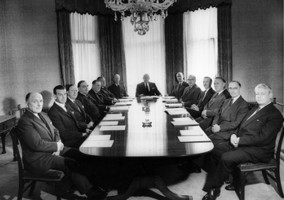The charity sector has a poor record on diversity, says David Ainsworth - one which is not acceptable, given the communities we serve.
Over the last weeks and months we’ve seen some powerful voices raised on the subject of diversity and inclusion in the charity sector. The message is clear: we’re failing.
It's been an issue that has bubbled under for many years, but there appears to be a groundswell of willingness now to make changes and address this. Why now is not clear. Perhaps it is a response to the high-profile cases in the public eye, exemplified by the #metoo movement, which have shown that our society is showing a reduced tolerance for injustice.
Our own titles carry clear calls to action. Tom Lawson of Leap Confronting Conflict wrote powerfully on the subject in Governance & Leadership magazine. And Paul Amadi spoke out equally powerfully on the same subject in Fundraising Magazine.
One is a white chief executive saying that his peers do not recognise their own prejudice. The other is a black fundraiser saying that when he first joined the charity sector, he was expected to laugh at jokes about a “n****r in the woodpile”.
Before Christmas, the regulator weighed in, too. Its survey of charity trustees – the most comprehensive in a generation, found that they were “not reflective of the communities charities serve”. Trustees, it found, were white, male, retired and rich. Most were recruited through old boy networks, but when there was a formal process, they were even older and even richer.
Little has been done
This has been a problem for ages. A lot has been written about it, but little has been done, and it is easy to conclude that we are not practising what we preach. We are talking the talk, but those who work in our sector, like everyone else, enjoy the comfort of having our peer group around us, and have recruited in our own image.
But if the rest of society will not stand for privilege and prejudice, how much more important is it for charities to do the same? We exist as a sector to represent communities and ameliorate disadvantage. If we cannot be representative in our own workforce, then when we speak out against injustice, our voice is easy to ignore.
And we are harming ourselves, too. We are neither recruiting the best people, nor ensuring sufficient diversity of opinion when it comes to decision-making.
Lawson is now working with Acevo, and a loose confederation of 30 or 40 other charity leaders, in order to create a movement for change. We will write about in our news pages as it becomes clearer what form it will take. But it is very welcome, and we are keen to be part of it.
The disadvantages and prejudices we must overcome are multi-faceted. We give a lot of time to discussions about gender, and some – although probably not enough – to discussions about race. But arguably the disadvantages of poverty and class, and disability, are more pervasive and corrosive issues, and are still not given the attention they deserve.
Poverty and disability bring with them not just prejudice in the workplace, but a difficulty obtaining the skills to even enter the workplace, and a lack of the social connections and support which allow many of us to obtain the work experience, and do the intern-level work, necessary to get a white-collar job.
How do we solve it?
Inclusiveness is hard, because it involves going against a drip-feed of tiny differences, at every stage of recruitment, which lead finally to big differences in success by the time we get to the middle of our lives. I want to ask what needs to be done to solve this. What are the steps the sector must take to make this stop happening? Is it more a question of changing the norms and the conversation? Or is it more about actually taking steps to prevent unconscious discrimination in recruitment – and in promotion and retention.
I instinctively dislike quotas and positive discrimination - it is still discrimination - but I don’t pretend to have all the answers to that. I, too, am a white middle-class straight man, with no disabilities and a private education. Perhaps my position is easier to take if you have already achieved a measure of success.
In the end, the problem has to be part of the solution. Change can most easily be achieved, as Tom Lawson writes, through the affirmative actions of the people in positions of power. Change will come if middle-class white men choose not to hire middle-class white men. It feels as if the inclusivity movement must be inclusive of everyone.
Let us try to avoid bullying people into change. Calling those who sit on our trustee boards "pale, male and stale" does them a disservice. They are serving honourably for free and can no more help how they were born than anyone else. If the system is to change, the correct approach cannot be to make enemies of those whose help is needed, or tell them they are not wanted.
This is an area where we at Civil Society are keen to hear more, from contributors across the sector. We need to keep this conversation going, and we need to hear more constructive discussion and solution, and we are keen to curate that conversation on our website, in our magazines, and at our events. So please, tell us what you think.
Related articles











